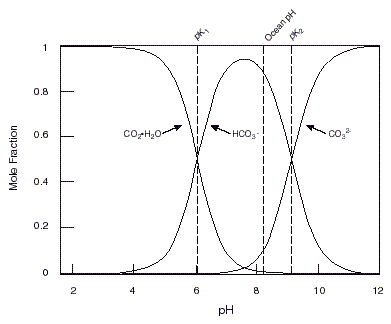Randy Holmes-Farley
Reef Chemist
View Badges
Staff member
Super Moderator
Excellence Award
Expert Contributor
Article Contributor
R2R Research
My Tank Thread
- Joined
- Sep 5, 2014
- Messages
- 67,265
- Reaction score
- 63,611
Reef Chemistry Question of the Day [HASHTAG]#182[/HASHTAG]
Which of the following is NOT an effect of adding a small amount of soda water (seltzer) to a reef aquarium?
A. The absolute amount of carbonate declines.
B. The absolute amount of bicarbonate declines
C. The absolute amount of carbonic acid rises
D. The pH declines
E. The total alkalinity remains the same
Good luck!
.
Which of the following is NOT an effect of adding a small amount of soda water (seltzer) to a reef aquarium?
A. The absolute amount of carbonate declines.
B. The absolute amount of bicarbonate declines
C. The absolute amount of carbonic acid rises
D. The pH declines
E. The total alkalinity remains the same
Good luck!
.


















